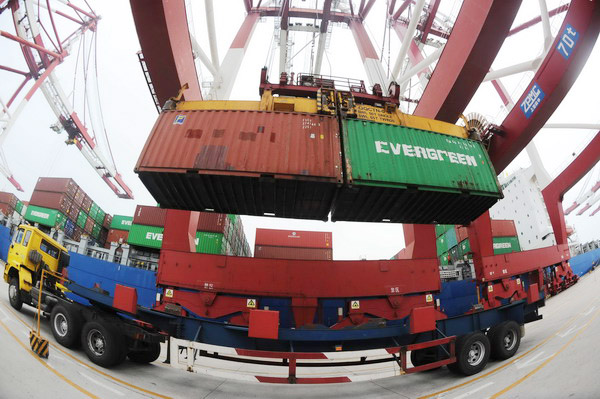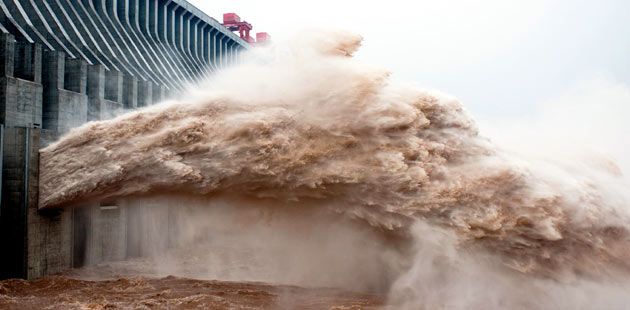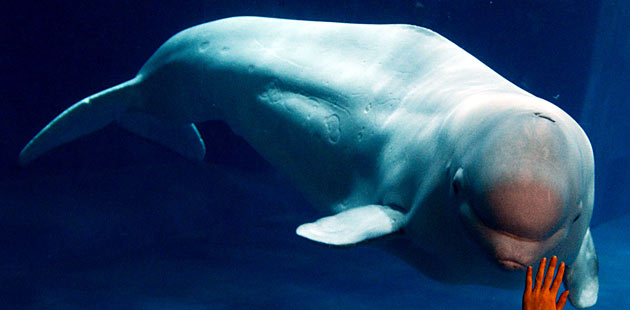Vice-premier: China does not seek surplus
Updated: 2012-09-20 09:24
By Ding Qingfen (China Daily)
|
||||||||
Wang calls for more objective way to calculate global trade
China does not seek a trade surplus as the nation is not only a large exporter, but also a significant importer, Vice-Premier Wang Qishan said on Wednesday.
Speaking at a forum, the Global Value Chain in the 21st Century, in Beijing, Wang called for the adoption of a new and more scientific global trade calculation mechanism, to objectively evaluate global foreign trade and oppose various types of trade protectionism.
|
 A container terminal at the Qingdao Port in Shandong province. China is willing to join hands with global institutions to firmly support free trade, maintaining and enhancing the multilateral trade system, Vice-Premier Wang Qishan said on Wednesday in Beijing at a trade forum. [Photo/China Daily] |
"China will unswervingly adopt the opening-up policy, strengthening efforts to protect intellectual property rights and treat foreign and domestic companies equally," Wang said.
His remarks come as China is being challenged by rising trade protectionist measures amid European debt woes and a weak global economic recovery.
On Monday, US President Barack Obama announced the lodging of a case at the World Trade Organization against China over alleged illegal subsidies for automobiles and auto parts, during an election campaign stop in Ohio, a major state for auto manufacturing.
The European Union recently announced it would investigate China's solar panel exports to see whether it had dumped goods in the region.
"The Chinese government is willing to join hands with global institutions to firmly support free trade, maintaining and enhancing the multilateral trade system," said Wang.
Many global institutions including the WTO are researching and calling for new systems and approaches to evaluate global foreign trade, or global value chains, as conventional methods of measuring foreign trade cannot truly reflect the flows of trade, and could easily lead to trade protectionism.
Wang said China welcomes a new approach. "A more scientific international trade calculation system could reflect, in a right way, the division of labor, added value and benefits shared among the countries worldwide in global chains," he said.
As a result of conventional methods of calculating trade, China, the world's manufacturing powerhouse, enjoys a large surplus due to its export volume, but the nation reaps few benefits from the trade exchanges.
Even worse, due to the big trade surplus, China has been the victim of trade protectionism worldwide, and is also made a scapegoat for economic problems and manufacturing job losses in the US.
"The conventional trade measures have led to a large surplus for China, but this cannot truly reflect the economic and trade situation," Vice-Minister of Commerce Gao Hucheng said at the forum.
"And it (the surplus) has always been politicized and abused by some countries to attack China's trade and currency policy."
Gao called for the adjustment and reform of the global trade calculation and evaluation system.
"China is willing to advance the reform," he said.
As November's US presidential election is looming, China and its trade and currency policies are a central issue.
According to US figures, the US ran a $295.4 billion trade deficit with China in 2011, an 8.2 percent increase year-on-year.
US Republican presidential nominee Mitt Romney accused Obama of being too soft on China over its currency and trade practices. He said that he would label China a "currency manipulator" on his first day in office.
US Ambassador to China Gary Locke recently called for China to allow its currency to appreciate further as "we know that the currency is still undervalued", while the yuan has appreciated against the dollar in recent years.
The world should work together to combat growing trade protectionism amid the fragile global economic recovery through spreading the concept of global value chains, said Angel Gurria, secretary-general of the Organization for Economic Cooperation and Development.
dingqingfen@chinadaily.com.cn











